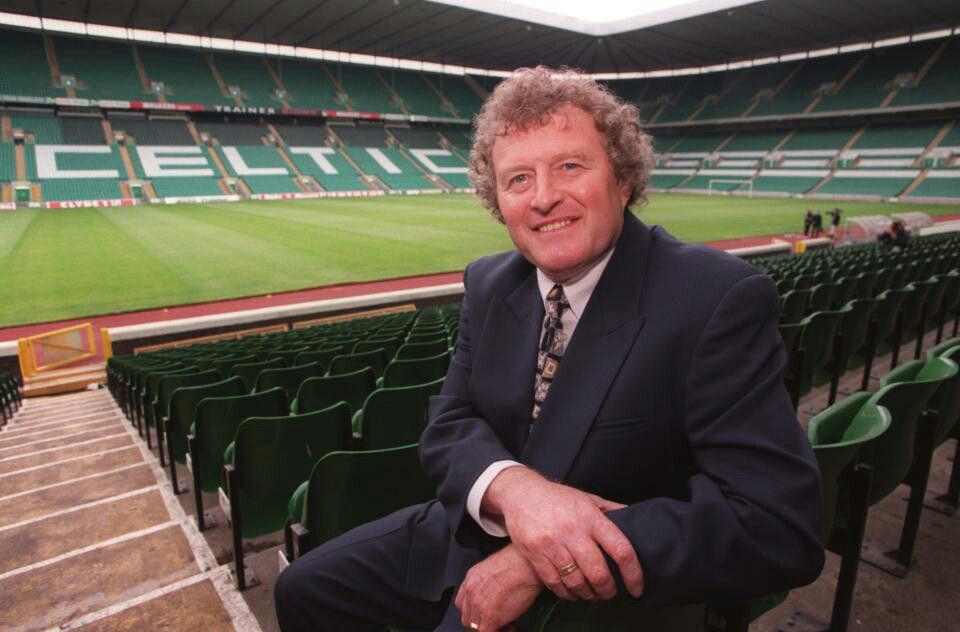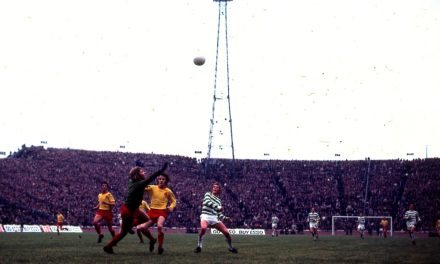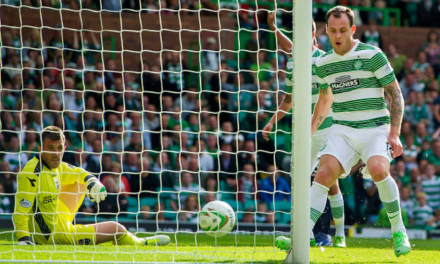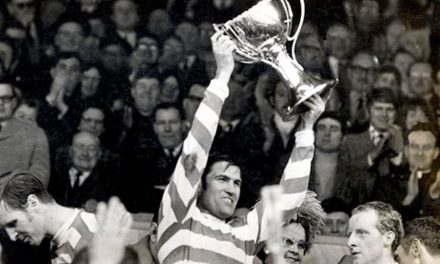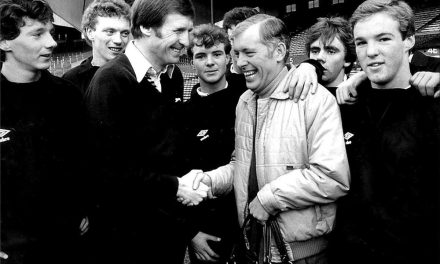In the summer of 1997 Celtic were in a truly desperate situation. Rangers had equalled their cherished 9 in a row league record and were now in the pole position to make it ten. The Scottish media gleefully informed us that Rangers, who had spent vast fortunes on their squad, could now play three teams of different players, one in Europe, one in the league, and one in the domestic cups.
For their part Celtic had sacked Tommy Burns as manager in May and had lost, or were in the process of losing, their three most valuable assets in Pierre Van Hooydonk, Jorge Cadete, and Paolo Di Canio. There were managerial approaches for the renowned Bobby Robson, who chose to stay with Barcelona, and the Portuguese manager, Artur Jorge, all to no avail. Then one day in June there was white smoke from Parkhead at last when Celtic’s new manager was announced. It was to be Wim Jansen.
Jansen had been a player of some renown, having won the European Cup and UEFA cup with Feyenoord and also playing in the 1974 and 1978 World Cup finals with Holland, when the Dutch were tremendously unlucky to lose to the host nation, West Germany and Argentina, in successive tournaments. If Celtic fans still cherished Lisbon 1967 then Milan 1970 was still spoke in hushed tones, akin to some family secret which was never to be mentioned. Wim Jansen had been an integral part of the Feyenoord team who had put Celtic to the sword in the 1970 European Cup final and he was now charged with being their salvation in their current crisis.
The Sun predictably surpassed themselves by their tasteless ‘Second worst thing to hit Hiroshima’ headline, a reference to the fact that Wim had managed in the Japanese league, however, he had managed Feyenoord to some success and the hope was this would be replicated at Celtic.
Having a rapport with the fans is enormously important for any Celtic manager and the Celtic faithful took to Wim from the start. It’s maybe easy to forget that he lost his first two league games, to Hibs and Dunfermline, as the new manager but despite this, he held his nerve and quickly made headway building a team. A number of new players came in – Darren Jackson, Stephane Mahe, Craig Burley, Henrik Larsson, Jonny Gould, Marc Rieper, Paul Lambert, and Harald Brattbakk – and all of them made a contribution in varying degrees throughout the season.
By autumn Celtic had settled into a strict 4-4-2 formation with Wim having the masterstroke to push Jackie McNamara into midfield from defence, a move which led to McNamara winning a Scottish player of the year award. Henrik Larsson signed for Wim as the Dutchman had been his mentor at Feyenoord and he became an integral part of the new Celtic. Craig Burley also blossomed into a wonderful attacking, goal scoring midfielder and became an essential player for Jansen.
Tremendous progress was made during winter. The League Cup was won against Dundee United on a memorable day at Ibrox and a crucial 2-0 win over Rangers in the New Year derby game set Celtic up for a magnificent run of results during spring. Then with six weeks remaining Wim announced that he would likely be leaving Celtic at the end of the season due to a clause in his contract. This was a huge blow to both players and fans and although there were rumours that Wim did not see eye to eye with Celtic’s general manager, Jock Brown, the supporters hadn’t perhaps realised how bad things were.
This put unnecessary added pressure on Celtic as they fought out a close run title race with both Rangers and Hearts. In a six game spell, Celtic won only two, yet the penultimate league game saw them in the position of winning the league if both points could be procured at East End Park in early May. Dunfermline deprived Celtic of both points with a freak late goal as Wim memorably screamed from the side-lines for his defence to push out when they had dropped deep into their own area. The title celebrations would have to wait.
The last game still saw Celtic in the driving seat, knowing that two points against St Johnstone on home soil would clinch the title. It’s difficult to express to young fans the pressure that was on Celtic that day. The delay between East End Park and the St Johnstone game was excruciating and is the most pressure I have ever felt in the run up to any Celtic game. The prospect of not winning that day was truly unthinkable. Jansen showed great composure in the build-up. He was always a laid back character and this served him well at a time when he must have felt a great burden. In the end Celtic prevailed against St Johnstone and from that day on Wim Jansen would always be remembered as a Celtic hero. The celebrations were long and joyous that bank holiday weekend.
Wim Jansen left Celtic shortly after and there was tremendous sadness and even anger with his departure. There was also some surprise that he never took another managerial job again in football. Over the years he was an occasional and very welcome visitor to Celtic Park with his wife, Colbie where he must have taken great pleasure in seeing the achievements of Henrik Larsson, who had blossomed into a superstar player of some renown. In 2001 Celtic fans were delighted to see Wim and Colbie sitting amongst them in Amsterdam for the Champions League qualifier against Ajax when he turned out to give his old club some support in his native Holland. Not in the fancy seats in the director’s box but sitting amongst the ordinary supporters, where his name was chanted loudly by the appreciative Celtic fans.
No Celtic fan can fail to have been moved when they heard of Wim Jansen’s passing last week. The wee Dutch guy with the distinctive perm arrived when Celtic’s need was at its greatest and led us to success which made untold thousands of people happy and gave them a memory they well long cherish. Make no mistake, Celtic owes Wim Jansen a great debt.
Whenever I think of Wim Jansen it just makes me want to smile.
May God rest him and may he rest in eternal peace.

